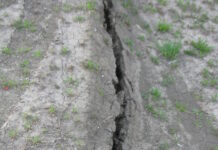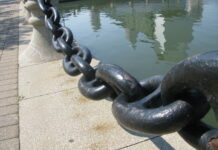Photo credit: DiasporaEngager (www.DiasporaEngager.com).
Large swaths of northern Israel, already rendered uninhabitable by months of Hamas rocket fire, are now ablaze. Nearly 100,000 Israelis who were forced from their homes in October have been living as “displaced persons” for almost eight months. Hezbollah has also succeeded in carrying out a number of ground incursions into Israeli territory in “October 7 style,” though fortunately all civilian communities have been evacuated.
After three quarters of a year, the Israeli people are asking: when will we go back home to the north?
This week may finally provide our answer: amidst rumors of a June IDF ground operation into Lebanon, Israel has just called up 350,000 reservists: nearly the entire reserve corps. Yet this war will be unlike anything we’re used to.
In October, Hamas had an estimated arsenal of 30,000 rockets. Hezbollah, by contrast, is estimated to have nearly a quarter million, and can fire more rockets in a single day than Hamas can in an entire month — enough to overwhelm the Iron Dome missile defense shield.
Moreover, an estimated 10% of Hezbollah’s arsenal consists of guided, precision high yield missiles, smart-bombs, and drones. Combined with the ability to overwhelm Iron Dome, these precision weapons have a terrifying capacity to destroy specific targets.
|
|
(Source: Alma Research and Education Center)
So what will Hezbollah strike, given the opportunity and capacity? Israelis have some thoughts on this: for months Israelis have been quietly stockpiling food, bottled water, AM/FM radios, flashlights, and extra batteries. This is because Israelis believe that Hezbollah will attempt to destroy electric plants, water systems, the roads that transport food, as well as communications and Internet connections (making old style radios potentially the only way to access information). Israelis are accustomed to hearing a siren and going to the bomb shelter for 10 minutes, However, in a war with Hezbollah, Israelis could be stuck in shelters for hours or even days at a time.
But there is at least some encouraging news: Israel has been preparing for this scenario for the past eight months. There are clues to indicate that Israel may have been quietly building back-up systems and other protections for much of the civilian infrastructure, but it is nonetheless a far more dangerous scenario than a face-off against Hamas.
Israel faces another dilemma in this upcoming Lebanon war: Lebanese casualties.
Israel’s operation in Gaza has produced the lowest civilian to combatant casualty ratio in human history, nine times lower than the UN published global average, and far lower than numbers achieved by the United States and coalition allies in places like Iraq and Afghanistan.
Part of the reason Israel was able to act with such incredible restraint is the Iron Dome: if an active Hamas rocket launcher is surrounded by civilians, Israel can afford to issue warnings and wait before destroying it, knowing that Israeli civilians will have a measure of protection in the meantime.
Not so in Lebanon: with the Iron Dome potentially overwhelmed and with Hezbollah’s high yield precision munitions pointed at Israeli civilian targets, the IDF will have no choice but to destroy the active rocket launchers quickly. If such rocket launchers are located in densely populated areas, such as downtown Beirut, that could mean very high levels of civilian casualties.
Self-defense under these circumstances is absolutely permitted by international law, morality, and basic common sense, whereas Hezbollah’s practice of hiding weaponry in civilian areas is not.
Lebanese casualties would be tragic and worthy of empathy, yet even so, the blame should fall squarely on Hezbollah (and not Israel) for turning an entire nation into one massive human shield. Even Israel’s historical restraint in Gaza has not been adequate to stem the tide of accusations of genocide, war crimes, and international legal actions. With Lebanese casualty counts potentially tens to hundreds of times greater, one can only imagine the international storm that will ensue. And that’s not even counting the dangers that await the Israeli homeland.
A war in the north could have unprecedented consequences for the Jewish State.
Daniel Pomerantz is the CEO of RealityCheck, an organization dedicated to deepening public conversation through robust research studies and public speaking.
Source of original article: Daniel Pomerantz / Opinion – Algemeiner.com (www.algemeiner.com).
The content of this article does not necessarily reflect the views or opinion of Global Diaspora News (www.GlobalDiasporaNews.com).
To submit your press release: (https://www.GlobalDiasporaNews.com/pr).
To advertise on Global Diaspora News: (www.GlobalDiasporaNews.com/ads).
Sign up to Global Diaspora News newsletter (https://www.GlobalDiasporaNews.com/newsletter/) to start receiving updates and opportunities directly in your email inbox for free.





























